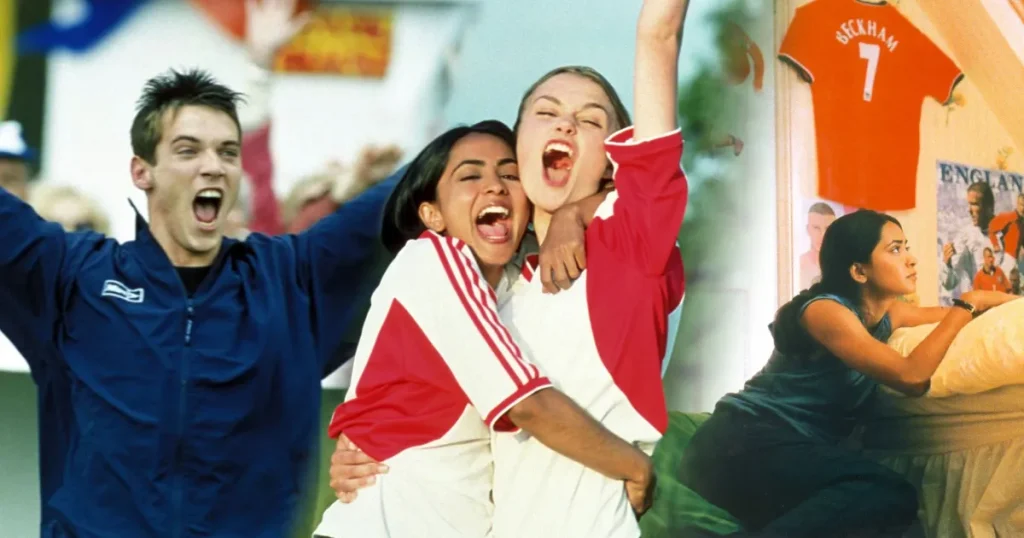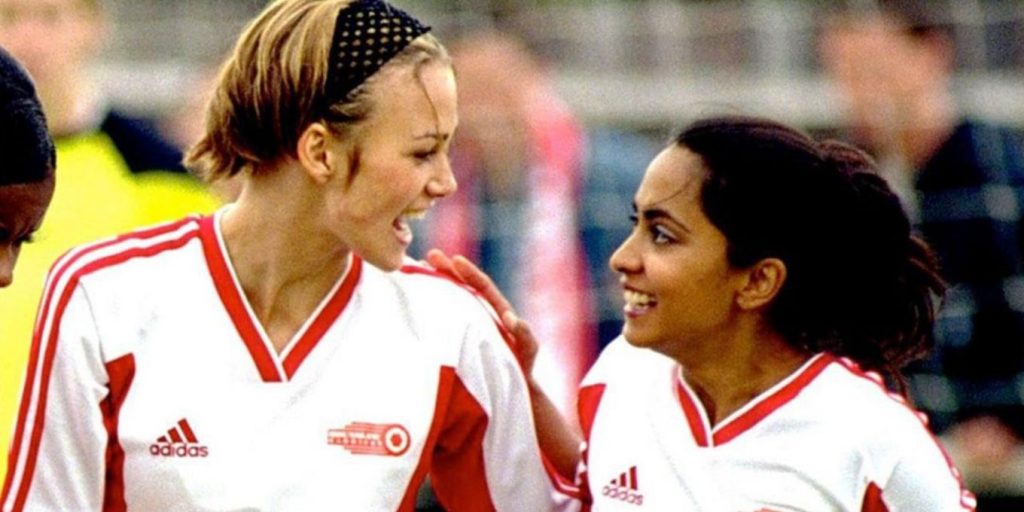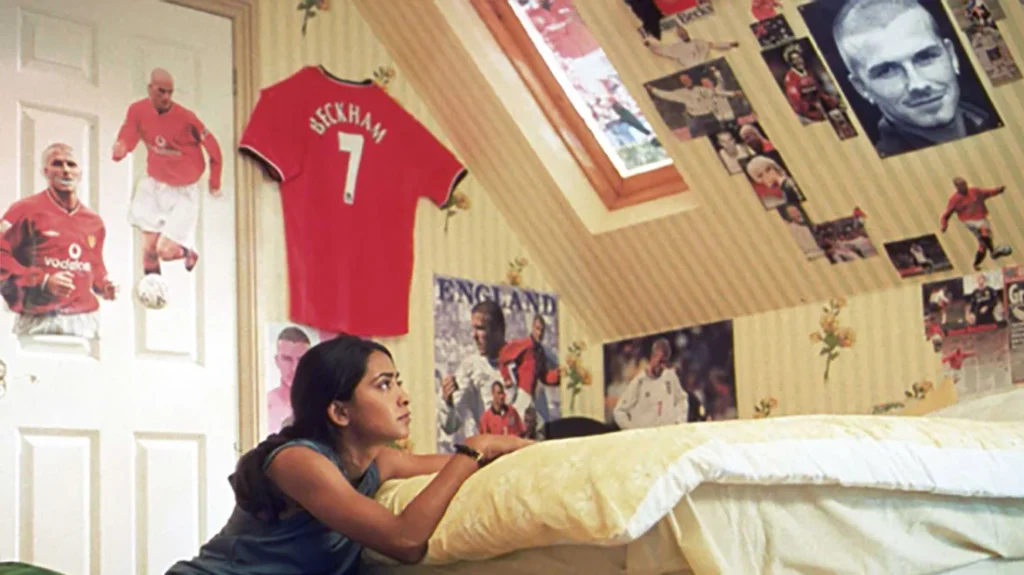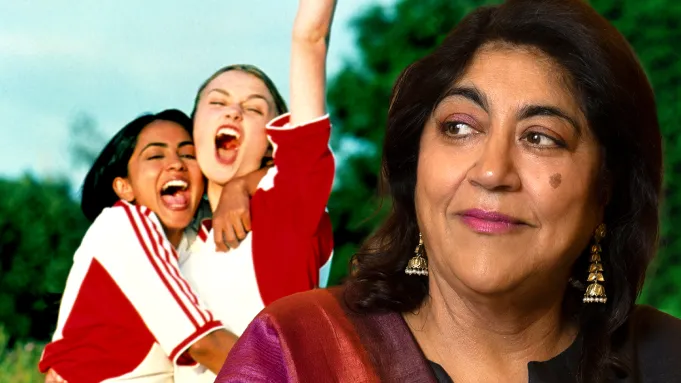When Bend It Like Beckham landed in UK cinemas in 2002, it wasn’t just a charming underdog sports film. It was even if we didn’t fully realise it at the time a cultural moment. A modest British indie about a Punjabi girl in West London defying tradition to chase a football dream, it went on to become one of the most loved and rewatched films of its generation.
Two decades later, the film hasn’t aged. It’s matured and with recent chatter around the idea of a sequel, the timing couldn’t be more perfect to revisit why Bend It Like Beckham deserves its “classic” status and why revisiting this world now actually feels right.

A Groundbreaking Film Disguised as a Crowd-Pleaser
Part of what made Bend It Like Beckham so quietly revolutionary was that it never tried to be. Director Gurinder Chadha crafted a story that wore its radicalism lightly but make no mistake, it was radical.
Jess (Parminder Nagra), a British Indian teenager obsessed with football, wasn’t just fighting for a spot on the team. She was negotiating the weight of cultural expectations, gender roles, and that universal tug-of-war between identity and belonging.
At the time, the idea of a brown girl leading a mainstream British film one that didn’t end in trauma or tragedy, but in triumph felt quietly groundbreaking and it still does!

Still Funny, Still Fierce, Still Feminist
What’s kept the film alive in the public imagination isn’t just its message, but how joyfully it delivers it. The humour, the slightly chaotic aunties, the football montages set to Bhangra-pop fusion it’s still a blast to watch. Beneath the laughs is a fiercely feminist story.
Jess and Jules (a pre-Pirates Keira Knightley) were girls who didn’t ask for permission to take up space. They clashed with their families, their coaches, and the systems built to sideline them, but they never gave up the pitch. It’s not just their football story that lingers it’s the messy friendship, the awkward romance, the realness of trying to be two things at once.

Why It Still Resonates — Maybe Even More Now
In hindsight, Bend It Like Beckham hit a nerve because it spoke to multiple generations at once. For immigrant parents, it echoed their fears of assimilation and lost traditions.
For young people, it captured that confusing space where heritage, ambition, and identity intersect. For everyone else, it was just a damn good story.
Today, those tensions haven’t disappeared, they’ve evolved. In a world more openly discussing race, gender, and inclusion, Bend It Like Beckham feels prophetic. It wasn’t trying to make a political statement. It simply told the truth.
So… A Sequel? Actually, Yes.

Normally, the idea of sequels to beloved classics triggers eyerolls but in this case it’s more than nostalgia it’s an opportunity.
Imagine Jess and Jules now: women in their 40s, maybe coaching, maybe parenting, still navigating a world that hasn’t caught up to their early wins. Women’s football is finally enjoying global recognition, but it’s still riddled with issues around pay gaps, media attention, and diversity.
A sequel could dive into all of that, using humour and heart to tackle what comes after the dream.
There’s also space to introduce a new generation. A young South Asian girl growing up in post-Brexit Britain, dealing with different pressures, different politics but still needing a story like Jess’s to show her it’s possible.
The original was never just about football and a follow-up wouldn’t need to be either.
Final Whistle — Or Just Half-Time?
Bend It Like Beckham is a classic not because it was loud or flashy, but because it spoke to people quietly, hilariously, and with enormous heart. It gave us permission to be more than one thing. To run towards something, even if the world told us not to.
If there’s more to that story and clearly, there is then bring on the sequel.
The pitch is ready.


